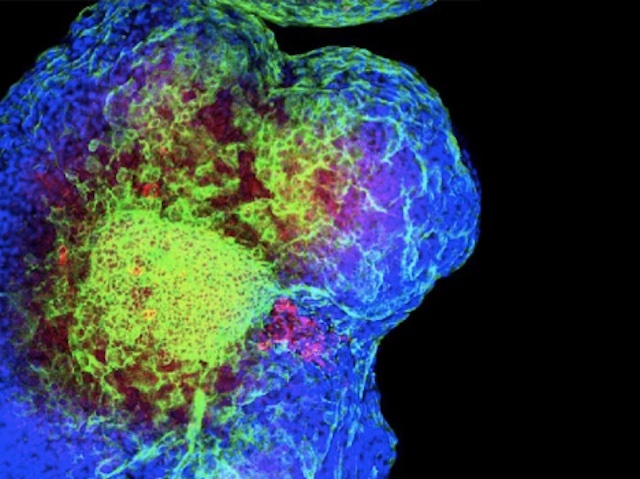IPPT, BERTAM, August 30 2021 -
It was an awesome achievement for Assoc. Professor Dr. Tan Jun Jie, a stem cell biologist from the Universiti Sains Malaysia (USM) Advanced Medical and Dental Institute (IPPT) when the research paper where he is the first and corresponding author was published in the Nature Communications, August 2021 issue.
The paper entitled ‘Human iPS-derived pre-epicardial cells direct cardiomyocyte aggregation expansion and organization in vitro’ highlighted the work of Jun Jie in collaboration with a group of researchers from the Massachusetts General Hospital (MGH), Harvard Medical School in Boston, Massachusetts.
Together they have successfully generated pre-epicardial cells, a group of premature epicardial cells that support early heart development.
According to Jun Jie, these pre-epicardial cells (PECs) are generated from human induced pluripotent stem cells (hiPSCs), the lab-made “reprogrammed” skin cells that can make any type of cells in the human body.
“During early heart development, pre-epicardial cells cover the heart and form the outer heart surface membrane called epicardium, and then become the support cells that construct the final shape of the heart, making the heart structurally and functionally more mature.
“If these pre-epicardial cells are removed from the embryo, the heart will fail to develop further (due to hindered heart muscle cell proliferation, heart expansion, and coronary vessel formation), and the embryo won’t be able to survive to birth,” he said.
He added, “We can now produce pre-epicardial cells in the lab and get them closer to do what they do during early heart formation in the dish. This allows us to better understand the role of early developmental cells in forming a complex organ like the heart, in order to better formulate strategies to regrow heart tissues for patients with heart failure using their own cells.”
Jun Jie obtained his doctorate degree in heart regeneration and stem cell biology from the University of Oxford and is currently attached to the Regenerative Medicine Cluster at IPPT.
He is now leading the team in pluripotent stem cell research for heart tissue engineering and regeneration research, supported by a Fundamental Research Grant Scheme (FRGS) from the Ministry of Higher Education Malaysia, USM-Industry Matching Grants with CryoCord Sdn Bhd and ALPS Global Holding.
Nature Communications is a peer-reviewed, open access, scientific journal published by Nature Research since 2010. It is a multidisciplinary journal, and it covers the natural sciences, including physics, chemistry, earth sciences, medicine, and biology. It is one of the highly regarded peer-reviewed journals in the publishing industry and has an impact factor of 12.124 which is extremely high as compared to other journals in the same league. (24 April 2018)
Note: Journal Reference: Jun Jie Tan, Jacques P. Guyette, Kenji Miki, Ling Xiao, Gurbani Kaur, Tong Wu, Liye Zhu, Katrina J. Hansen, King-Hwa Ling, David J. Milan, Harald C. Ott. Human iPS-derived pre-epicardial cells direct cardiomyocyte aggregation expansion and organization in vitro. Nature Communications, 2021; 12 (1) DOI:
10.1038/s41467-021-24921-z


